
Unprecedented music for Shakuhachi by Frank Denyer (releases on Tzadik, Mode) with Yoshikazu Iwamoto on shakuhachi and Paul Hiley joining Denyer on percussion.
In Stock
Quantity in Basket: None
Log In to use our Wish List
Shipping Weight: 5.00 units
EU & UK Customers:
Discogs.com can handle your VAT payments
So please order through Discogs
Sample The Album:
Yoshikazu Iwamoto-shakuhachi
Paul Hiley-percussion
Frank Denyer-percussion
Click an artist name above to see in-stock items for that artist.
UPC: 5024545491623
Label: Another Timbre
Catalog ID: at03
Squidco Product Code: 8866
Format: CD
Condition: New
Released: 2007
Country: UK
Packaging: Jewel Tray
Tracks 1 & 3-8 recorded at Dartington Hall, Devon, April 1984.
Track 2 recorded at the Royal College of Music, London, September 1981.
Track 9 recorded at Dartington Hall, Devon, May 1999
"You are inside a snow globe. But instead of a mini landscape and plastic snowflakes there are notes and sounds. Some of the notes swirl past your head, birds flapping their wings and calling. Others ricochet off the glass of the globe, spinning unpredictably. Some plummet to the floor and splinter into shards while other congeal and swell into soft pulsating masses. Welcome to the shakuhachi world of Frank Denyer as realized by Yoshikazu Iwamoto.
You get the sense of uncompromising personal vision, generating music having few precedents and quoting no one. Spare and austere. The sparseness of the proceedings gives minute gestures sweeping powers. The purity of the tone echoes in space, sounds continuing in your head after they are no longer audible. Like a Japanese karensui rock garden which depicts the universe with a few stones and some gravel.
The Performer: Yoshikazu Iwamoto comes from the KSK shakuhachi line of Katsuya Yokoyama. This school produces excellent technicians and Iwamoto was one of the very best. "Was" because since producing this recording he disappeared into self imposed exile after renouncing all his human relationships. It is said he no longer plays. This is particularly strange because prior to all this he was an advocate of the shakuhachi life, encouraging students to play as much as possible.
The Music: "Quite White" is a solo piece exploring pianissimo on shakuhachi with notes that would not usually be played quietly. Iwamoto displays remarkable control of pitch and dynamics. "Wheat" I-VI are a series of short musical vignettes alternating between percussion/shakuhachi duets and solo pieces. Although the CD is billed as music for shakuhachi it is also a remarkable display of percussion as atmospherics and texture. The percussion never settles into an obvious rhythm, which is very refreshing. Titling songs "Unnamed" or "On, On, It Must Be So" seems Beckettian and this music shares some of the arid rigour of Beckett's aesthetic.
Denyer and Iwamoto met while both were on the faculty at Wesleyan University in the '70's. Iwamoto challenged Denyer to compose music for the shakuhachi and promised to learn it no matter how difficult and how long it would take. Thus this CD is replete with technical hurdles handled with aplomb by Iwamoto. For this reason and for the intense compositional discipline the CD is a landmark shakuhachi recording. There is something heroic about Iwamoto and Denyer creating this mountain of music to climb. It'll be a long time before anything as extreme as this comes along. Anybody who is interested in shakuhachi or contemporary wind music will find this album fascinating."-Brian Ritchie, Shakuhachi Forum
Artist Biographies
• Show Bio for Frank Denyer "Frank Denyer is an English composer whose brilliantly coloured and imaginatively rich compositions fall between several and into none of the accepted categories of contemporary music. Born in London in 1943, he was a chorister at Canterbury Cathedral by the age of nine, the director of the experimental music ensemble Mouth of Hermes in London at the age of twenty-five, and a Doctoral student in ethnomusicology at Wesleyan University, Connecticut at the age of thirty. He has lived and worked in east Africa and India. Denyer's music is distinguished by a keen sensitivity to sound. Each of his works is written for a unique combination of instruments, more often than not a combination that no composer has dreamed of before. Each work finds its own individual form, laying down the path for its journey as it proceeds. In some cases even such basic musical materials as the scales and the tuning system are invented from scratch.This music is handmade in every detail; it is engaged in a complex process of affirmation and negation, accepting no easy solutions. For Denyer, a fine pianist who has composed not one note for his own instrument since his student days, the whole question of musical instruments is a central one. His compositions present an astonishingly varied array of sound sources - new instruments of his own invention, adapted instruments, instruments of non Western traditions, rare or virtually extinct instruments, and conventional Western instruments. This whole concern with what his friend Morton Feldman called 'the instrumental factor' is not a postmodern mixing-and-matching of instruments from different 'ethnic' traditions: rather, his work suggests that all instruments bear the imprint of the tradition of which they are a part, whether that tradition be nascent, mature or decaying, and that at the beginning of the twenty-first century we cannot afford to be complacent about which musical traditions we consider to be 'ours.' Neither is his music that of a composer making do with ready-mades or whatever lies to hand (like Cage's percussion ensemble works of the 1930s and early 1940s). Nor, at the other extreme, does one have the sense of the composer gradually assembling an instrumentarium of his own, creating the illusion of an alternative musical universe (like Harry Partch): for one thing, Denyer's assembly of new instruments hardly ever plays together; for another, they rarely recur from one work to the next - each new composition wipes the slate clean and starts afresh. The instruments are like flowers that suddenly spring up between the cracks in a wall; they seem to be there because the opportunity has arisen for them to exist, to fill the gaps between isolated islands of instrumental sound. Denyer's concern with musical instruments can also be seen as a metaphor for the larger question of what can be salvaged, artistically, from the chaos of civilization as we begin our new century. Compositions like A Monkey's Paw (1987-88) and Finding Refuge in the Remains (1992) confront this central issue - the sense of new life emerging from a morass of dead or decaying matter - an urgent issue for him both compositionally and culturally." ^ Hide Bio for Frank Denyer
7/9/2025
Have a better biography or biography source? Please Contact Us so that we can update this biography.
Track Listing:
1. on, on - it must be so (1977-78) 8:31
2. quite white (1978) 7:37
3-8. wheat (1977-81) 9:30
9. unnamed (1997) 45:28
Improvised Music
Percussion & Drums
Cultural Musics from Around the World
London & UK Improv & Related Scenes
Free Improvisation
Trio Recordings
Search for other titles on the label:
Another Timbre.


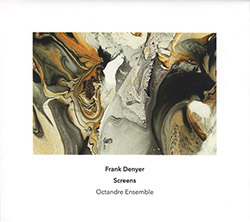
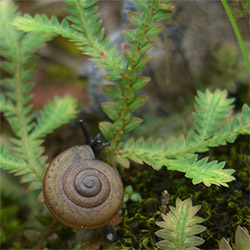
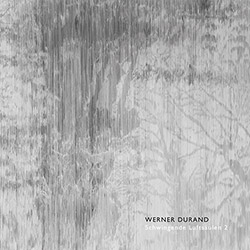


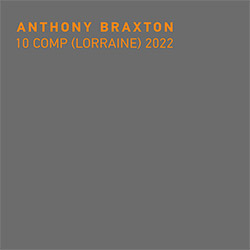
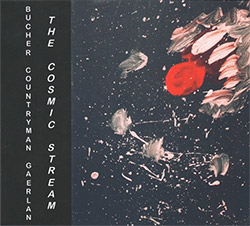


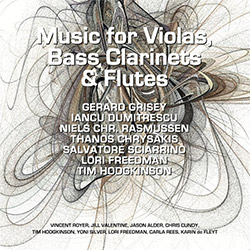
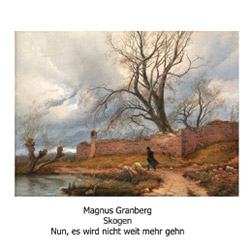









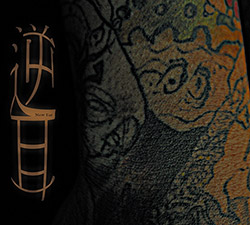
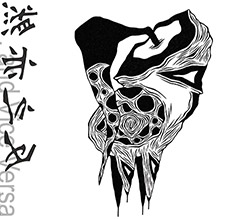








![BlueRing Improvisers: Materia [2 CDs]](https://www.teuthida.com/productImages/misc4/36513.jpg)








![Wheelhouse (Rempis / Adasiewicz / McBride): House And Home [VINYL]](https://www.teuthida.com/productImages/misc4/36462.jpg)
![+DOG+: The Light Of Our Lives [2 CDs]](https://www.teuthida.com/productImages/misc4/36009.jpg)


![Parker, Evan / Jean-Marc Foussat: Insolence [VINYL]](https://www.teuthida.com/productImages/misc4/36398.jpg)










![Deupree, Jerome / Sylvie Courvoisier / Lester St. Louis / Joe Morris: Canyon [2 CDs]](https://www.teuthida.com/productImages/misc4/36404.jpg)



![Eventless Plot | Haarvol: The Subliminal Paths [CASSETTE + DOWNLOAD]](https://www.teuthida.com/productImages/misc4/36232.jpg)










![Eventless Plot | Francesco Covarino: Methexis [CASSETTE + DOWNLOAD]](https://www.teuthida.com/productImages/misc4/36231.jpg)



![Das B (Mazen Kerbaj / Mike Majkowski / Magda Mayas / Tony Buck): Love [VINYL]](https://www.teuthida.com/productImages/misc4/36329.jpg)


![Eternities: Rides Again [CASSETTE]](https://www.teuthida.com/productImages/misc4/36247.jpg)
![Lopez, Francisco: Untitled (2021-2022) [2 CDs]](https://www.teuthida.com/productImages/misc4/36438.jpg)






![Money : Money 2 [2 CDs]](https://www.teuthida.com/productImages/misc4/35894.jpg)




![Klinga, Erik: Elusive Shimmer [VINYL]](https://www.teuthida.com/productImages/misc4/36258.jpg)
![CHANGES TO blind (Phil Zampino): Volume 9 - I Wave on a Fine Vile Mist [CD + DOWNLOAD]](https://www.teuthida.com/productImages/misc4/36061.jpg)

![Wallmart / Rubbish: Asset Protection [split CD]](https://www.teuthida.com/productImages/misc4/35900.jpg)


![+Dog+: The Family Music Book Vol. 5 [2 CDs]](https://www.teuthida.com/productImages/misc4/35897.jpg)
![Kuvveti, Deli : Kuslar Soyledi [CASSETTE w/ DOWNLOAD]](https://www.teuthida.com/productImages/misc4/36107.jpg)

![Brown, Dan / Dan Reynolds: Live At The Grange Hall [unauthorized][CASSETTE]](https://www.teuthida.com/productImages/misc4/36245.jpg)








![Palestine, Charlemagne / Seppe Gebruers: Beyondddddd The Notessssss [VINYL]](https://www.teuthida.com/productImages/misc4/36206.jpg)
![Palestine, Charlemagne / Seppe Gebruers: Beyondddddd The Notessssss [NEON GREEN VINYL]](https://www.teuthida.com/productImages/misc4/36207.jpg)

![Laubrock, Ingrid: Purposing The Air [2 CDs]](https://www.teuthida.com/productImages/misc4/35639.jpg)

![Yoko, Ono / The Great Learning Orchestra: Selected Recordings From Grapefruit [2 CDs]](https://www.teuthida.com/productImages/misc4/35841.jpg)









![Zorn, John / JACK Quartet: The Complete String Quartets [2 CDs]](https://www.teuthida.com/productImages/misc4/35609.jpg)

![Lonsdale, Eden: Dawnings [2 CDs]](https://www.teuthida.com/productImages/misc4/35480.jpg)



![Sorry For Laughing (G. Whitlow / M. Bates / Dave-Id / E. Ka-Spel): Rain Flowers [2 CDS]](https://www.teuthida.com/productImages/misc4/35985.jpg)

![Rolando, Tommaso / Andy Moor : Biscotti [CASSETTE w/ DOWNLOADS]](https://www.teuthida.com/productImages/misc4/36106.jpg)


![Electric Bird Noise / Derek Roddy: 8-10-22 [CD EP]](https://www.teuthida.com/productImages/misc4/35970.jpg)








![Elephant9 : Mythical River [VINYL]](https://www.teuthida.com/productImages/misc4/34624.jpg)



![Elephant9 with Terje Rypdal: Catching Fire [VINYL 2 LPs]](https://www.teuthida.com/productImages/misc4/35355.jpg)
![Deerlady (Obomsawin, Mali / Magdalena Abrego): Greatest Hits [VINYL]](https://www.teuthida.com/productImages/misc4/34876.jpg)







![Surplus 1980: Illusion of Consistency [CD]](https://www.teuthida.com/productImages/misc4/35069.jpg)
![Staiano, Moe: Away Towards the Light [VINYL + DOWNLOAD]](https://www.teuthida.com/productImages/misc4/35037.jpg)
![Coley, Byron: Dating Tips for Touring Bands [VINYL]](https://www.teuthida.com/productImages/misc4/17906.jpg)

![Lost Kisses: My Life is Sad & Funny [DVD]](https://www.teuthida.com/productImages/misc4/lostKissesDVD.jpg)